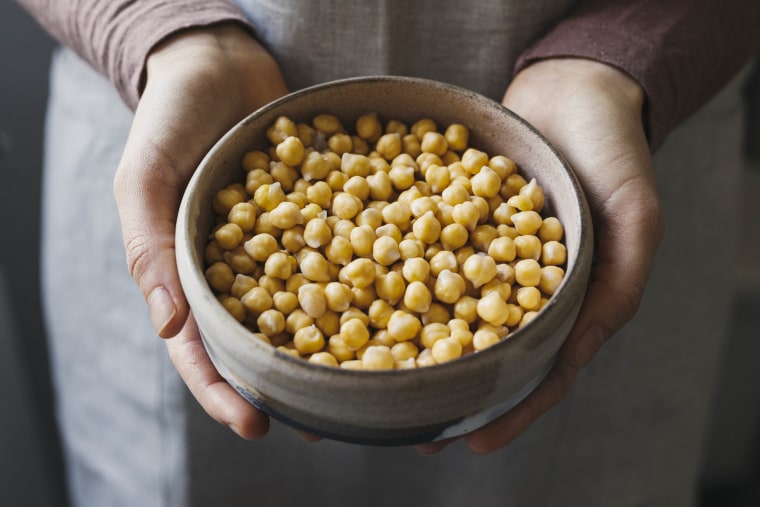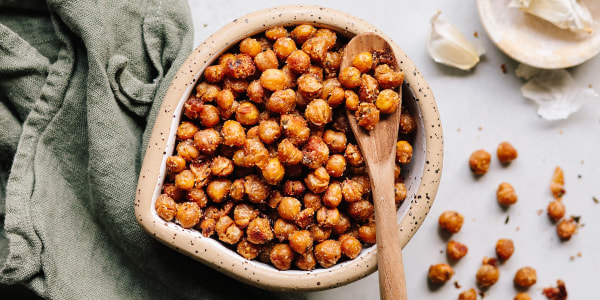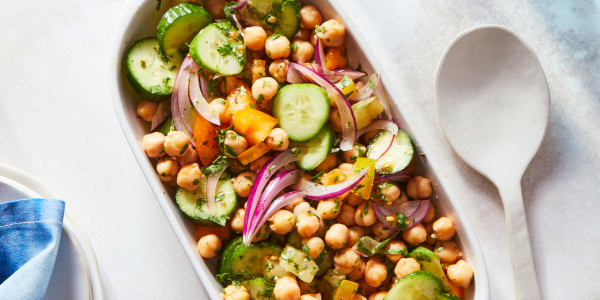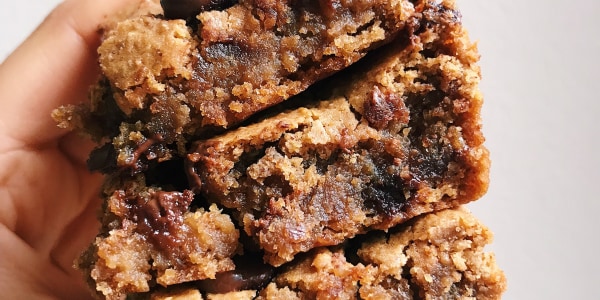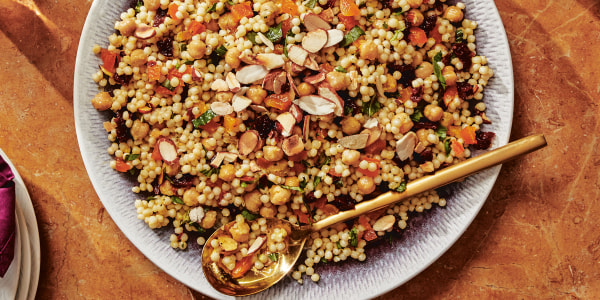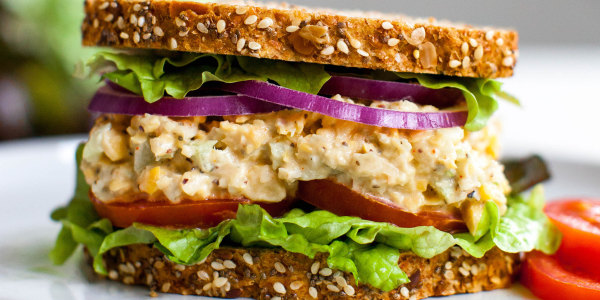Welcome to Start TODAY. Sign up for our Start TODAY newsletter to receive daily inspiration sent to your inbox — and join us on Instagram!
Chickpeas are a plant-based protein that should be a staple in your pantry. These hearty legumes are an affordable, convenient and nutritious food that adds protein and fiber to basically any meal. Although they are often labeled as a bean, they are actually a pulse — the edible part of the legume plant.
Eating chickpeas regularly does wonders for your health. Research has linked them to weight management, heart health, diabetes management, gut health and cancer prevention. As an added bonus, the liquid that chickpeas are canned in — called aquafaba — can serve as an egg replacement in some recipes.
Learn about the nutrition facts of chickpeas, as well as creative and yummy ways to use them in your daily diet.
Chickpea nutrition facts
A ½ cup serving of canned chickpeas has:
- 130 calories
- 7 grams protein
- 3 grams fat
- 20 grams carbohydrates
- 6.5 grams fiber
- 1.8 milligrams iron
Canned chickpeas are packed in a salty mixture, so the sodium content varies by brand. However, rinsing the chickpeas in cold water before eating reduces the sodium by up to 40%.
Benefits of chickpeas
Chickpeas are a plant-based food with many health benefits. According to research, chickpeas have more fiber than other pulses. Fiber is known for its role in moving along digestion, and it’s also tied to lowering blood pressure and protecting the heart. Most Americans don’t get the recommended 25 to 30 grams of daily fiber, and eating a serving of chickpeas can help you meet about 25% of your daily needs.
The fiber and protein in chickpeas also contributes to weight maintenance. Observational research shows that chickpea consumers have a lower risk for obesity than those who do not eat chickpeas. What’s more, a research review found that people who eat pulses are more likely to lose weight, even if they don’t restrict calories.
Chickpeas also have resistant starch, a type of carbohydrate that is “resistant” to digestion. This means that chickpeas take longer to digest, which increases satiety and reduces blood sugar spikes. Studies suggest that the resistant starch in chickpeas stimulates certain hormones that promote insulin secretion, which keeps blood sugar levels steady after a meal.
Similarly, chickpeas may improve cholesterol levels and other blood lipids. It’s well known that fiber has a positive impact on heart health and cholesterol levels, but research in animals suggests that the dietary fiber from chickpeas decreases cholesterol levels and triglycerides and positively impacts gut microbiota. Animal research does not always translate to humans, but it’s a promising field of study.
Who shouldn't eat chickpeas?
There are relatively no downsides to eating chickpeas. Some people may experience gas due to the high fiber content of the legume. However, chickpeas do not cause as much gas as some other legumes. To reduce the potential gassiness, buy dry chickpeas and cook them from scratch. This breaks down the carbohydrates that cause the gas and may lead to less flatulence.
Do chickpeas have protein?
A ½ cup of chickpeas has 7 grams of protein, making them a reliable source of plant-based protein. While it’s a common myth that plants do not contain all of the essential amino acids, research suggests otherwise. A 2023 analysis in Food Science & Nutrition states that chickpeas have significant amounts of all the essential amino acids (the ones that the body cannot make). Therefore, chickpeas are a nice addition to any meal to increase the protein, but they can also serve as a great post-workout snack for muscle growth and recovery.
What is aquafaba?
Aquafaba is the starchy liquid in a can of chickpeas, and it’s sometimes used as an egg white replacement in plant-based baking. Believe it or not, you can use aquafaba to make a vegan meringue or even a plant-based whipped cream. Utilizing aquafaba is simple. Rather than placing canned chickpeas in a colander and rinsing with cold water, drain the chickpeas into a bowl to catch the liquid. Set the liquid aside and you have aqufaba to use in a simple recipe, like this Vegan Chocolate Mousse.
Healthy chickpea recipes
Chickpeas have a neutral taste, making them a nice addition to basically any dish. Seriously, you can roast them as a snack, add them to salad and even use them in dessert. Here are some of our favorite chickpea recipes.
